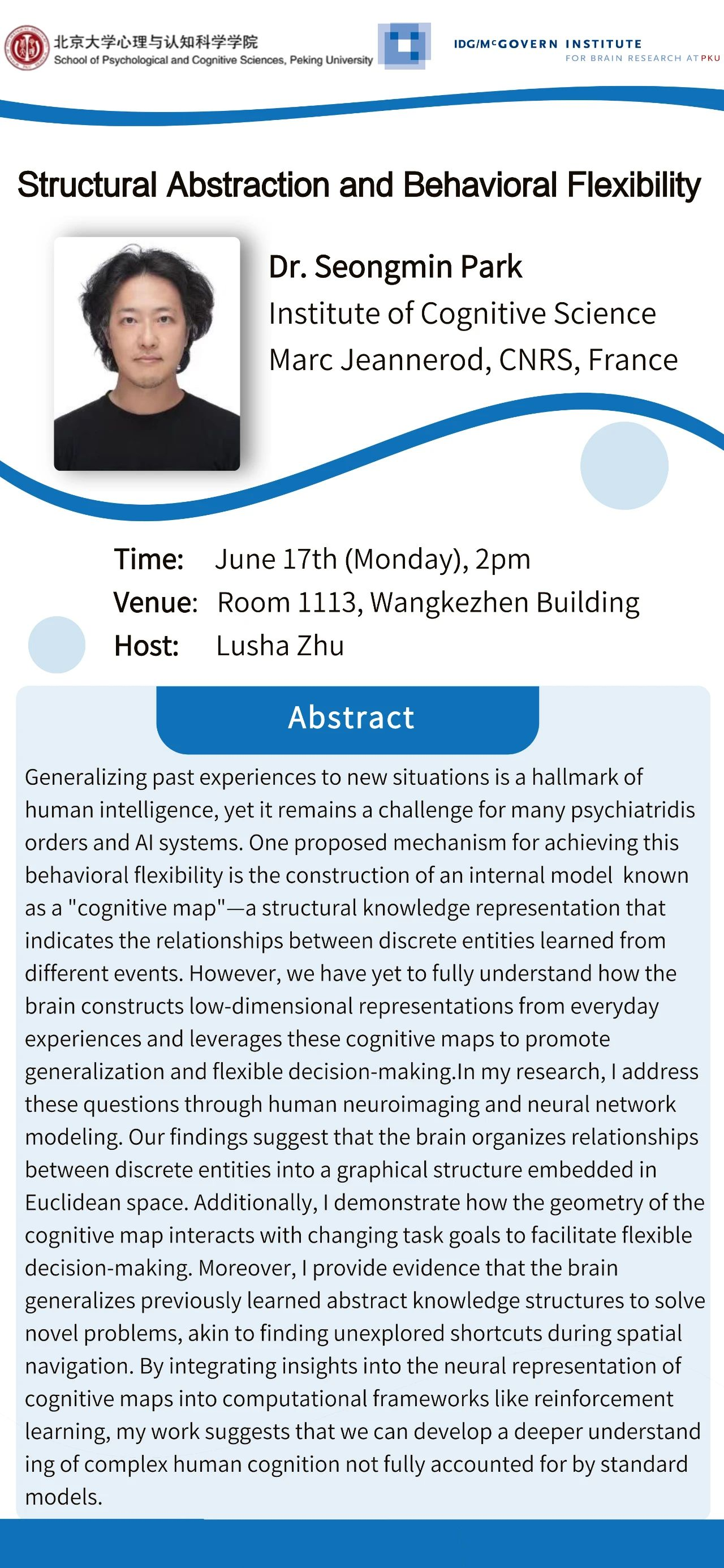
Speaker: Dr. Seongmin Park, Institute of Cognitive Science, Marc Jeannerod, CNRS, France
Time: 14:00 p.m., Jun 17, 2024, GMT+8
Venue: 1113 Wang Kezheng Bldg, Peking University
Abstract:
Generalizing past experiences to new situations is a hallmark of human intelligence, yet it remains a challenge for many psychiatric disorders and AI systems. One proposed mechanism for achieving this behavioral flexibility is the construction of an internal model known as a "cognitive map"—a structural knowledge representation that indicates the relationships between discrete entities learned from different events. However, we have yet to fully understand how the brain constructs low-dimensional representations from everyday experiences and leverages these cognitive maps to promote generalization and flexible decision-making.In my research, I address these questions through human neuroimaging and neural network modeling. Our findings suggest that the brain organizes relationships between discrete entities into a graphical structure embedded in Euclidean space. Additionally, I demonstrate how the geometry of the cognitive map interacts with changing task goals to facilitate flexible decision-making. Moreover, I provide evidence that the brain generalizes previously learned abstract knowledge structures to solve novel problems, akin to finding unexplored shortcuts during spatial navigation. By integrating insights into the neural representation of cognitive maps into computational frameworks like reinforcement learning, my work suggests that we can develop a deeper understanding of complex human cognition not fully accounted for by standard models.
Source: McGovern Institute for Brain Research at PKU
